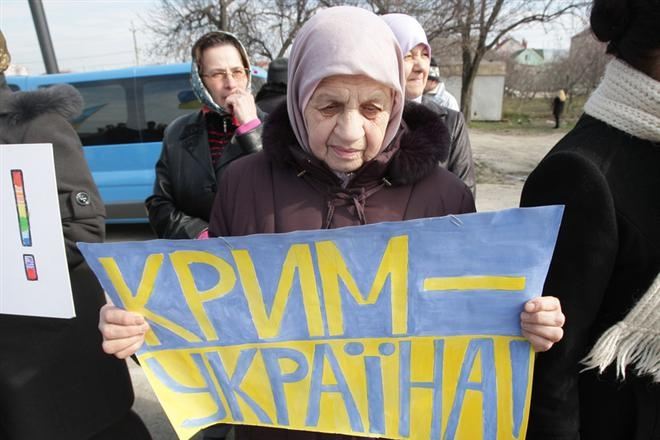Two-year sentence on ‘defamation’ charges for writing about Russian occupiers of Crimea

Russian President Vladimir Putin has passed a number of repressive bills over the last month which still further restrict freedom in both Russia and occupied Crimea. One of the bills introduces possible imprisonment for so-called ‘defamation’, while making the definition of defamation dangerously broad and, therefore, easy to abuse. This is yet another method for deterring people from making entirely accurate comments, for example, about “the Crimean occupation leaders”.
Anastasia Martynovska from the Ukrainian Helsinki Human Rights Union has analysed the new amendments and explained to the Crimean Human Rights Group what dangers the new law poses for people in occupied Crimea.
Law № 538-ФЗ , which Putin signed into force on 30 December 2020, makes changes to Article 128-1 of Russia’s criminal code which is illegally applied in Crimea.
The first major change is the level of possible ‘punishment’. Up till the end of 2020, a person, if convicted, faced either a fine or a term of community work. Now these are the lower end of the range of penalties, and not at all low, with the fine up to one million roubles. The maximum sentence is now two years’ imprisonment.
The steeper sentence makes the vaguer wording particularly ominous. Article 2 refers to “defamation, contained in a public appearance, publicly demonstrated work, mass media or committed publicly with the use of information – telecommunication networks, including the Internet, or with respect to several people, including those not individually identified”. Any attempt to challenge a claim of defamation will be examined by occupation regime ‘courts’, which, according to the European Court of Human Rights’ decision on 14 January regarding Ukraine’s claims against Russia over Crimea, cannot be considered to have been “established by law” as required for the right to a fair trial enshrined in Article 6 of the European Convention on Human Rights. At least in all politically-motivated cases, Crimean ‘judges’ do not go against the FSB or prosecutor.
Martynovska explains that the law has now been broadened to include the Internet and other telecommunications networks, with this effectively meaning that “any utterance in which a person on social media or an Internet forum calls somebody an occupier could lead to criminal prosecution.” It will be considered sufficient that this was on the Internet, even if on a page not open to the general public. She points out also that in the case of supposed defamation concerning several individuals, this does not even need to have been public, and could involve talking about the occupiers even in personal correspondence.
She warns that the amendments will lead to a significant broadening in the possibilities for prosecuting ‘dissident’ thought and its expression. These and the massive punishments are undoubtedly intended to serve as a deterrent for any journalists; bloggers; civic journalists or just about anybody with a civic position. They may well hesitate to speak of FSB torture, falsification of evidence, etc., or of the real mortality figures over coronavirus being concealed for the same reason, regardless of the evidence to back such assertions.
Russia has many other weapons with the first introduced just two months after Russia’s invasion and annexation of Crimea. Article 280.1 of Russia’s criminal code punishes for something called ‘making public calls to action aimed at violating Russia’s territorial integrity”. This has been used against three Ukrainians in occupied Crimea: Crimean Tatar Mejlis leader Ilmi Umerov; journalist Mykola Semena and Crimean Tatar activist Suleyman Kadyrov. In all their cases, and those of at least two Russian citizens sentenced to prison terms in the Russian Federation, the charges were over statements in full accordance with international law regarding Crimea being Ukrainian or spelling out that Russia is an occupying power.
Earlier in December 2020, Putin signed into law a bill envisaging prison sentences of up to 10 years for putting an end to Russia’s illegal occupation of Crimea, or making calls to do so. The document was signed on the day that an overwhelming majority of countries in the UN General Assembly adopted a resolution effectively demanding just that.





